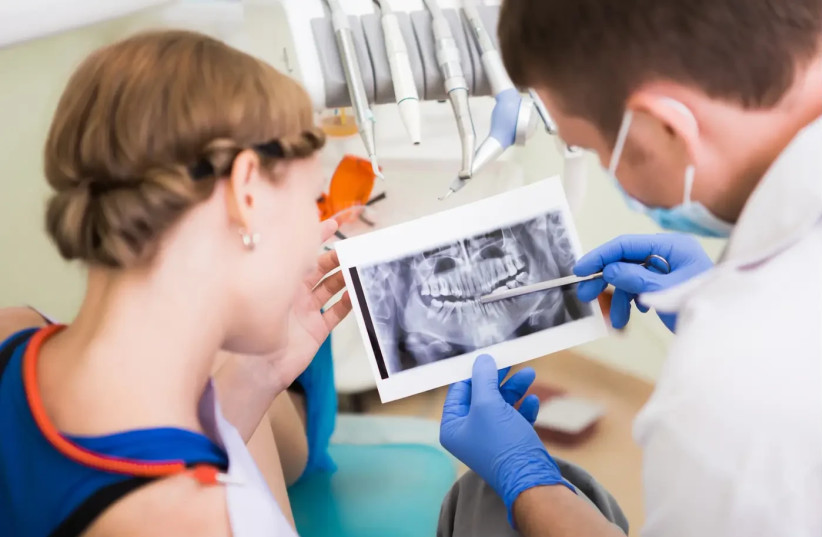Dental implants have evolved significantly in recent years, offering efficient solutions even for complex cases termed "extreme." Wondering what to do in such situations and what the process entails? Read on to find out.
Dental implants provide an effective and successful treatment for individuals suffering from tooth loss, seeking a permanent solution. Successful dental implantation can enhance self-confidence, speech, and the ability to eat. So, if you're considering implantation, the following information is tailored just for you.
Bone Grafts and Sinus Lifts
In many cases of tooth loss, bone resorption also occurs. This condition can make successful implantation challenging. However, advanced bone grafting techniques allow for the construction of sufficient bone volume in the implantation area. Sinus lift is a surgical procedure preceding dental implantation, intended for those experiencing bone loss in the upper jaw's posterior region.
The aim of the procedure is to increase the bone height, using the sinus cavity space, for tooth or multiple teeth implants in the posterior upper jaw area. This is a well-established procedure in oral medicine, typically performed about three months before dental implant installation. During the procedure, the surgeon reconstructs the layer that holds the teeth, enhancing the chances of successful implantation.
The procedure is performed by a specialized dentist and is considered a minor plastic surgery lasting several hours. The fact that the patient receives only local anesthesia ensures a painless experience during the treatment. Additionally, the significant advantage of local anesthesia is that minor side effects and postoperative discomfort are minimal.
It's worth mentioning that sinus lifts offer several advantages, including facial improvement, grooming, and preserving a natural appearance. Moreover, choosing a dentist capable of performing both types of lifts (closed and open sinus lifts) is essential, allowing for the best treatment option tailored to your specific case. Each method has its advantages and disadvantages, so there's no universally recommended approach. Therefore, attending a consultation and receiving appropriate treatment after initial examination and diagnosis is essential.
Zygomatic Implants
Zygomatic implants are an innovative type of dental implants designed for patients with extreme upper jaw bone loss. These implants, longer than standard implants, are installed in the zygomatic bone (cheekbone), allowing for implantation even in cases of insufficient upper jaw bone.
The advantages of zygomatic implants are manifold, as they enable implantation in cases where there's insufficient upper jaw bone, a condition previously untreatable with standard implants. Furthermore, unlike traditional techniques for extreme bone deficiency treatment, such as bone grafting or sinus lift, zygomatic implants shorten the treatment duration and lead to faster recovery. Additionally, these implants allow for aesthetically pleasing tooth restoration, improving the patient's quality of life. High success rates over time indeed provide a significant advantage.
Note that after zygomatic implants' installation, it's crucial to maintain oral hygiene and regular dental check-ups—as with natural teeth, ensuring the long-term durability of dental implants. It's important to mention that zygomatic implants are not suitable for every patient, and before making a decision, it's advisable to seek professional medical advice from a dentist.
Subperiosteal Implants
Subperiosteal implants are a novel type of dental implants intended for cases where there's a small amount of bone in the jaw or in patients suffering from severe dental anxiety. These implants are placed beneath the gum tissue and on the jawbone, eliminating the need for cutting or stitching.
The installation process of subperiosteal implants is shorter and less invasive compared to standard implants since patients experience less pain and discomfort afterward, thanks to the absence of incisions and stitches. This solution is ideal for patients with dental anxiety since subperiosteal implants offer an ideal solution, allowing them to undergo oral rehabilitation without fear or trauma. Additionally, these implants enable the immediate placement of temporary crowns after installation, facilitating a quick return to normal life for the patient.
Perfect Smile Dental Clinic offers a range of advanced dental aesthetic treatments, from teeth alignment using various types of bridges to coating with a variety of high-quality coatings available on the market, to the aforementioned implants. The clinic's professional team comprises leading dentists in Israel and worldwide, doctors who have managed and run departments in various hospitals in Israel and have experience with thousands of patients. The support you'll receive will start from your first visit or call to the clinic, throughout all stages of consultation, treatment, healing, and follow-up until everything is successfully completed.
Perfect Smile Dental Clinic. The IDF Battalion 5, Ashdod. 08-6770900
In collaboration with ZAP Doctors

